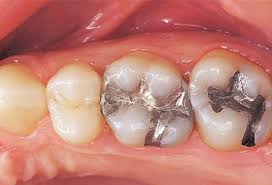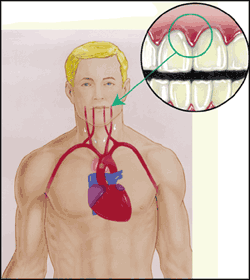The mouth is often considered a window to the rest of the body, offering clues about overall health. As peculiar as it might seem, your oral health can provide insights into your cardiovascular health. An expanding body of research points towards an intriguing link between dental health and heart disease. This article delves into this unlikely correlation and reveals how taking care of your teeth could be a step towards guarding your heart.
A Deeper Dive into Heart Disease
Understanding Different Types of Heart Disease
The term “heart disease” covers a wide range of conditions that affect the heart’s structure or function. Heart diseases vary from coronary artery disease, characterized by plaque buildup in the heart’s arteries, to heart rhythm problems (arrhythmias), and heart defects you’re born with (congenital heart defects). Each condition has its specific characteristics and implications, but all impair the heart’s normal functioning.
Exploring the Causes and Risk Factors of Heart Disease
Heart disease doesn’t arise from a vacuum. It’s typically a consequence of numerous interconnected factors. Some factors are immutable, like age, sex, family history, and ethnicity, but many are directly tied to lifestyle. Unhealthy eating habits, sedentary behavior, tobacco use, excessive alcohol consumption, chronic stress, and poor sleep hygiene are significant contributors. Moreover, chronic health conditions like hypertension, high cholesterol, diabetes, and obesity can dramatically increase heart disease risk.
Lifestyle Choices and Heart Disease
The connection between lifestyle choices and heart health is undeniable. Harmful habits like excessive drinking, smoking, illicit drug use, and physical inactivity are all tickets to accelerated heart disease. On the flip side, adopting a balanced diet, incorporating regular exercise, getting adequate sleep, and managing stress effectively can safeguard your heart.
Identifying the Signs and Symptoms of Heart Disease
Heart disease symptoms vary depending on the specific type and severity of the condition. However, common signs often include chest pain or discomfort, shortness of breath, palpitations, lightheadedness or fainting, and swelling of the legs, ankles, and feet. Symptoms might not always be evident, emphasizing the importance of regular medical check-ups.
The Critical Role of Dental Health
Exploring the Importance of Dental Health
Dental health might seem trivial compared to heart health, but it plays a significant role in your overall well-being. It not only impacts your appearance and self-esteem but also affects crucial functions like eating, speaking, and socializing. Plus, it has a strong connection with your mental health, with poor dental health often linked to conditions like depression and anxiety.
Unpacking Common Dental Problems
Dental health issues can range from tooth decay and gum diseases (such as gingivitis and periodontitis) to oral cancer and mouth infections. Often, these problems are a result of poor oral hygiene, unhealthy diet, tobacco use, and excessive alcohol consumption. The common thread running through these conditions is the fact that most are preventable with the right care.
Consequences of Poor Dental Health
Left untreated, dental health problems can have severe repercussions. These extend beyond tooth loss and pain to include debilitating infections and serious systemic conditions. For example, severe gum disease, or periodontitis, can lead to tooth loss and even raise the risk of heart disease and other health problems.
The Importance of Proper Oral Hygiene
Good oral hygiene is your first line of defense against dental health problems. Brushing your teeth at least twice a day, flossing daily, using mouthwash, and getting regular dental check-ups can keep your teeth and gums healthy. Neglecting these simple steps can allow plaque—a sticky film of bacteria—to build up, leading to tooth decay and gum disease.
Establishing the Connection Between Dental Health and Heart Disease
The Role of Inflammation
Inflammation is a common thread between poor dental health and heart disease. Chronic inflammation in your mouth (as seen in gum disease) can trigger systemic inflammation throughout the body. Over time, this systemic inflammation can damage blood vessels, including those of the heart, leading to heart disease.
The Impact of Bacteria on Heart Health
Research shows that the same bacteria that cause dental plaque and gum disease can enter your bloodstream and travel to your heart. There, they can contribute to inflammation and the development of plaques in your arteries, increasing the risk of heart disease.
Insights from Current Research
Numerous studies suggest a link between poor oral health and heart disease. Research published in the Journal of the American Heart Association found that people with periodontal disease are nearly twice as likely to have heart disease. However, more research is needed to fully understand the nature of this link.
How Dental Health Can Guard Your Heart
The Necessity of Regular Dental Check-ups
Seeing your dentist for regular check-ups isn’t just about keeping your teeth white—it can also contribute to your overall health. Dentists can spot early signs of systemic diseases like heart disease in their early stages. Early detection can lead to early treatment and potentially save your life.
Guidelines for Optimal Oral Hygiene
Good oral hygiene habits are crucial in maintaining a healthy mouth. Brush your teeth at least twice a day with fluoride toothpaste, floss regularly to remove plaque between teeth, and rinse with an antiseptic mouthwash to kill bacteria. Regular visits to the dentist for professional cleaning and check-ups are equally important.
Choosing the Best Oral Hygiene Products
The market is flooded with a wide array of oral care products—making the right choice can be overwhelming. When choosing a toothpaste, look for one containing fluoride. Use a toothbrush with soft bristles and replace it every three months. A good quality mouthwash can help kill bacteria that brushing and flossing may miss.
Nutrition and Its Role in Dental and Heart Health
Your diet can significantly influence both your oral and cardiovascular health. Foods high in sugar and simple carbs can lead to tooth decay, while high-fat, high-sodium foods can raise your risk of heart disease. A balanced diet, rich in fruits, vegetables, lean proteins, and whole grains, can promote both good dental health and a healthy heart.
FAQs
- Does oral health have an impact on heart health? Yes, poor oral health, especially gum disease, can increase the risk of heart disease.
- What oral hygiene practices should I follow to ensure good dental health? Regular brushing, flossing, using an antiseptic mouthwash, and frequent dental check-ups are essential.
- Can my diet influence my dental and heart health? Absolutely. A diet high in sugar can damage both your dental health and heart health. A balanced diet is recommended for both.
- What are some common symptoms of heart disease? Symptoms can vary, but common ones include chest discomfort, breathlessness, and swelling in the legs, ankles, and feet.
- Can maintaining good dental health prevent heart disease? While good dental health can reduce your risk of heart disease, other factors like genetics, lifestyle habits, and other health conditions also significantly contribute to heart healt


Another group of researchers investigated the relationship between oral infections and the risk of cardiovascular disease in 1400 Native Americans. This population has a high incidence of diabetes.
C reactive protein levels are very high in patients who have oral infections. C reactive protein is secreted by the liver in response to inflammation. In response to trauma, infection, and inflammation, levels rise quickly. Gingivitis can cause heart disease because of the inflammation of the cardiomyocytes.
Dental Health and Gum Diseases
One study was done in Scotland that showed a direct correlation between dental infection and heart disease. The researchers studied the habits of “teeth brushing” among 7000 people.
The people who reported bad oral hygiene had a 74% greater chance of having cardiovascular disease.
These people were followed for 7 years. Studies have shown that when people had their oral infections treated and their gum diseases, heart disease went down dramatically.
There is also a thought that if a person has poor dental hygiene, then they would probably have other health problems as well including cardiovascular disease. This study concluded that there was a link between cardiovascular disease and heart disease. Dentists need to be aware of these associations, and they should refer these patients to proper specialists.
Dental Infection and Heart Disease Treatment
Proper oral care is the most important intervention that a person can do to prevent heart disease associated with dental infections. Once an infection has been identified, a healthcare provider will provide antibiotics. These antibiotics include:
- Penicillin VK (Veetids)
- Amoxicillin and clavulanic acid (Augmentin)
- Erythromycin (EES, E-Mycin, Ery-Tab)
- Clindamycin (Cleocin)
- Ampicillin and sulbactam (Unasyn)
- Ticarcillin and clavulanate (Timentin)
- Metronidazole (Flagyl)
Brushing your teeth and flossing is very important in order to prevent gum disease. Flossing is important because it prevents teeth.
This electric toothbrush by Braun has a 3D cleaning action to get all corners of your mouth.
The Intricate Web of Dental and Heart Health
In conclusion, it’s impossible to separate dental health from overall health. It’s all part of a complex, interconnected system. If your mouth isn’t healthy, chances are other parts of your body aren’t either. Take care of your teeth and gums—it’s an investment in your long-term health, and might just save your heart in the process.
There has been evidence proving that gum disease is related to heart disease, especially the development of endocarditis. Proper oral care is the key to preventing these complications.



I had no idea that these two were even related to each other. Great post.